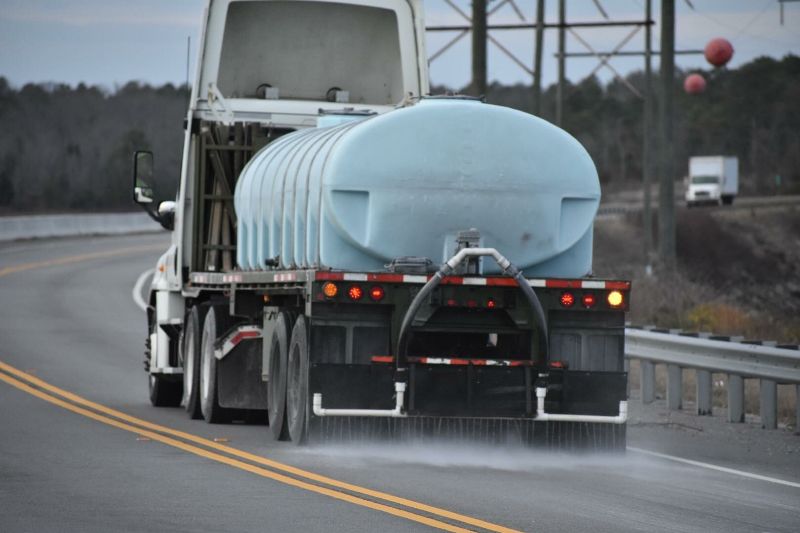
With frigid temperatures expected to hit parts of north Georgia and metro Atlanta this week, the Georgia Department of Transportation (GDOT) is actively preparing and coordinating brine operations and staffing plans in an effort to respond to the pending threat of icy conditions. Brine operations are underway in northwest Georgia, and will begin in metro Atlanta and Northeast Georgia at 7 a.m. Thursday. Brine operations will continue all day Thursday and into Friday as needed, with the likelihood that most routes will be treated at least twice. Crews will begin salting metro Atlanta interstates and state routes Thursday evening into Friday morning as needed based on conditions. Crews will work 12-hour shifts and will prioritize treating interstates, state routes, bridges and overpasses, with priority routes including the entirety of I-20, I-85 and I-75 north of metro Atlanta, I-75 south of metro Atlanta to Macon, and I-85 south of Atlanta to Columbus. An estimated 635,000 gallons of brine will be used to treat more than 21,000 lane miles in the affected areas.
GDOT will be closing all Georgia Express Lanes at midnight Thursday into Friday. As the weather system evolves, GDOT will continue to monitor conditions and will reopen the Express Lanes as conditions allow.
Motorists in affected areas are asked to plan now to limit travel Thursday into Friday morning. If you must venture out during this time, please give GDOT crews room and space on the roads to help ensure they can safely do their jobs. Please be aware of the brine trucks and know they must travel 40 mph to properly apply the treatment. Please pay attention and stay back at least 100 feet.
Precipitation is not the only threat to Georgia roads this weekend. GDOT reminds you to turn off sprinkler systems with automatic timers set to run overnight and be sure to drain the system of water to prevent them from freezing and expanding, which can result in burst pipes. Sprinkler systems operating near a highway or road can create hazardous icy spots for motorists the next morning during a winter freeze. Drivers are cautioned to be on the lookout for icy patches or black ice in the early morning hours. Black ice is a thin, often invisible sheet of ice that forms on the roadway, especially on bridges, overpasses and low lying areas. It can appear at any time when temperatures drop below freezing and there is any form of moisture, from sprinklers, run-off or precipitation on the roadway. Motorists are advised that if a road looks wet, they should assume it is ice and drive accordingly – or better yet, stay home if at all possible.
Additionally, with strong winds expected, there is possibility for fallen trees and downed power lines. If you come across either, do not cross them and report them to your local authorities or 911. Turn around and take an alternative route.
GDOT began preparations for this winter weather season over the summer ensuring equipment and supplies are available and ready. Statewide, there are 1,922 employees on call to respond, and 1.8 million gallons of brine available with the capability to produce an additional 50,000 gallons per hour.


Bulloch Public Safety
06/09/2025 Booking Report for Bulloch County

Bulloch Lifestyle
Adoptable Pet of the Week: Senor Tucan

Georgia Lifestyle
Hey Georgians, Let’s Get Gatorwise

Chattooga Schools
GNTC announces Free Application Week for the fall semester

Bulloch Public Safety
05/27/2025 Booking Report for Bulloch County

Bulloch Public Safety
06/02/2025 Booking Report for Bulloch County

Bulloch Public Safety
05/19/2025 Booking Report for Bulloch County

Bulloch Public Safety
05/12/2025 Booking Report for Bulloch County

Bulloch Public Safety
05/16/2025 Booking Report for Bulloch County







